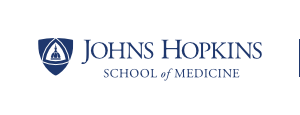JHSPH Alumni Profiles
Dr. Mei Yang-Woytowitz, PhD
 Dr. Mei Yang-Woytowitz graduated from Johns Hopkins University with a PhD in Chemistry in 2003. She then worked as a postdoctoral fellow at the Bloomberg School of Public Health in the Department of Environmental Health & Engineering. Before starting at JHU, Dr. Yang-Woytowitz received a BS in Chemistry from Peking University. After her time at Johns Hopkins, Dr. Yang-Woytowitz spent ten years at BD Life Sciences, in various roles, including taking part in the company’s Technology Leadership Development Program. In 2016-2017, she served as the Director of Product Development at Personal Genome Diagnostics. Currently, Dr. Yang-Woytowitz is the R&D Senior Manager in Assay Development at QIAGEN, which is a large biotechnology company.
Dr. Mei Yang-Woytowitz graduated from Johns Hopkins University with a PhD in Chemistry in 2003. She then worked as a postdoctoral fellow at the Bloomberg School of Public Health in the Department of Environmental Health & Engineering. Before starting at JHU, Dr. Yang-Woytowitz received a BS in Chemistry from Peking University. After her time at Johns Hopkins, Dr. Yang-Woytowitz spent ten years at BD Life Sciences, in various roles, including taking part in the company’s Technology Leadership Development Program. In 2016-2017, she served as the Director of Product Development at Personal Genome Diagnostics. Currently, Dr. Yang-Woytowitz is the R&D Senior Manager in Assay Development at QIAGEN, which is a large biotechnology company.
- Oversee multiple crossfunctional product development teams developing immunodiagnostic assays that require FDA approval and/or CE Mark (which is a certification for product safety in Europe).
- Manage and develop a team of scientists with various levels of depth and breadth of knowledge and skills.
- IP generation.
- Partnership development and technology evaluations.
Technology: Technologies in academic settings are more advanced and cutting edge. Industrial technology needs to be tried and true technology. Robustness is the key. Most exciting part of working in industry is to translate the most advanced technology into a product that can be reliably used in the clinical/industrial settings that make a huge impact.
Culture: Academic setting tends to be more relaxed and timeline is a vague concept. In industrial settings, it is profit-driven, so timeline and cost are major factors in determining the success of a project. A sense of urgency is needed when transition to industry. In addition, industrial environment requires much more team work. Being able to communicate and collaborate effectively with team members from various backgrounds is a key for success.
Knowledge and technical skills are the most valuable preparation. Most importantly the attitude or the mentalities of keep learning. Being able to quickly learn the essentials of a new technology, product or process gives us, those who have graduate student or postdocs training, an advantage. Additionally, the critical scientific thinking training gave us an edge in finding the essence of a problem and forming a solution.
I love to create a product and see the product make an impact. I was thinking of taking the academic path but changed my mind midway.
I searched for positions available in the Baltimore area and there was an opening in BD, Sparks, MD. I sent my resume, got an interview and an offer came afterwards. Currently, Indeed is a good job search website. Additionally, the best way to be considered for a position is through referral.
It’s a great program to expose to various technology, management styles, team cultures, form a network, and find an area you truly love to devote your efforts. It is a good path but starting with a regular non-rotating job also has its advantages.
Understanding regulatory policies and clinical research guidelines will be helpful. Some basic marketing and communication improvement related courses will be helpful.
It depends on the location in the country, or in general biotech or pharmaceutical companies. In general, pay in pharmaceutical companies is better. Jobs require interacting with clinical setting pay better. Startups tend to pay slightly better than well-established companies.
Healthcare, 401K, health benefits, family leaves, etc. Bigger companies tend to have better benefits.
In general, my company only provide sponsorship for outstanding scientist or higher up positions.
For Hopkins student, it is worth interacting with the hospitals and clinical labs to figure out if there is an opportunity and if it is a career you would like to pursue.
Definitely network, reach out, do a quick tour/informal interview if possible.
Look for industry or jobs that are in the very similar research field as you are.
Network with the Hopkins professors have startup companies.
